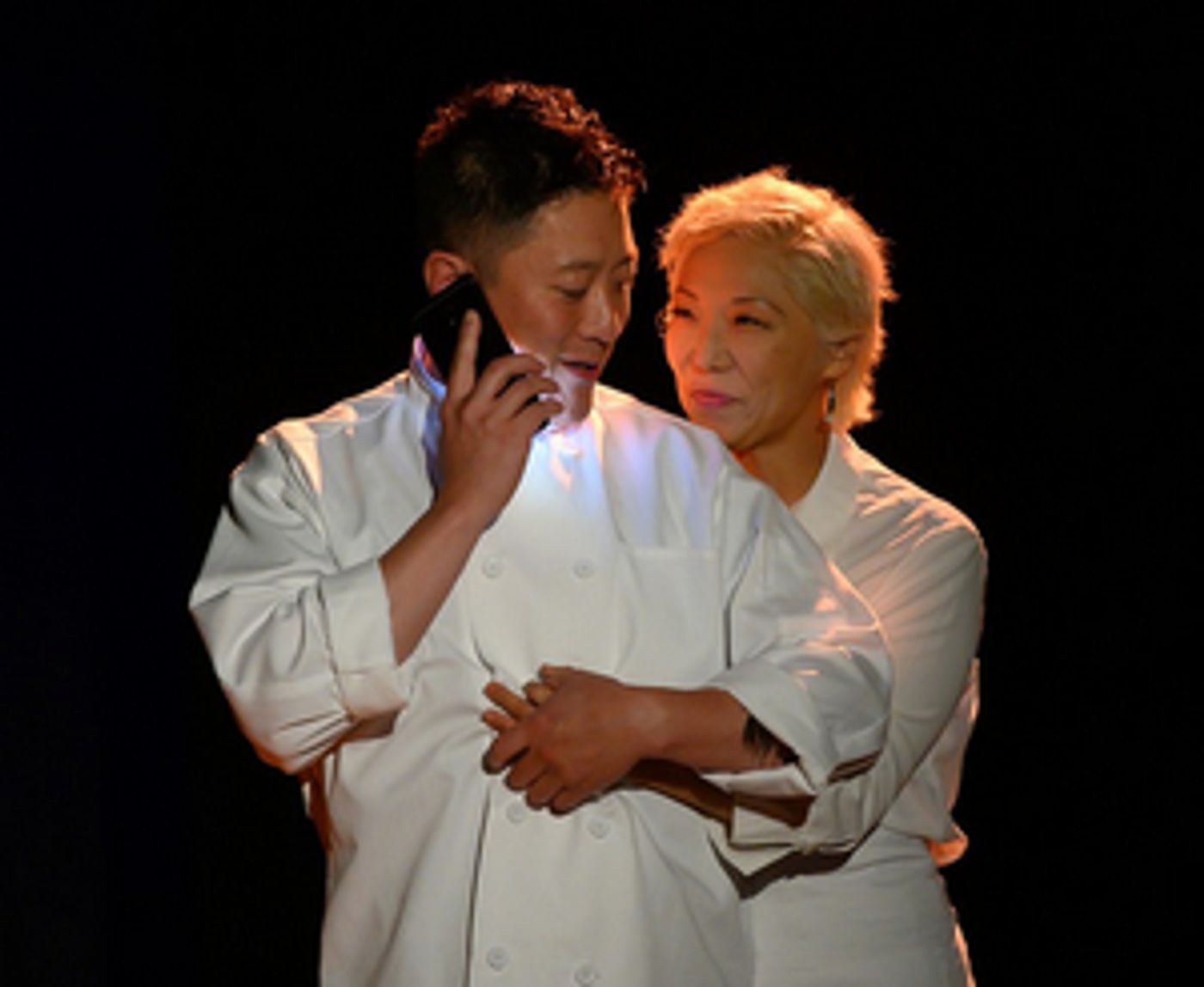Review: Food, Family, Mortality in AUBERGINE at Park Square Theatre
 AUBERGINE is, like its title, a quirky cross-cultural offering; like eggplant, it won't be to everyone's taste. It's a meditation circling around the ways food, family, memory, and mortality intertwine. Personally, I found it engaging though longer than it needs to be, at 2 hours and 10 minutes, including intermission.
AUBERGINE is, like its title, a quirky cross-cultural offering; like eggplant, it won't be to everyone's taste. It's a meditation circling around the ways food, family, memory, and mortality intertwine. Personally, I found it engaging though longer than it needs to be, at 2 hours and 10 minutes, including intermission.
Here's the skinny: Korean-American Ray, a chef, is attempting to care for his dying dad at home, a man who never appreciated his cooking. He relies on help from Lucien, a hospice nurse who originally came to this country as an African refugee. Ray also enlists the aid of his former girlfriend, a Korean-American, because she speaks enough Korean to make phone calls back to Ray's only other surviving relative in Korea, an uncle. Though these characters occupy the heart of the story, the play begins (oddly) with a lengthy monologue from Diana, a white woman, reflecting on a cherished food memory tied to her own father.
Act 2 also begins with a long monologue in direct address to the audience. At Park Square, this is performed in the lobby before we move back into the theater. This time the speaker is Cornelia, the girlfriend, who tells us how food stood in for both love and control in her childhood, and how that shaped and disordered her eating for a long time thereafter.
Kurt Kwan carries the central role of Ray; Sun Mee Chomet plays Cornelia. I've now seen each of these actors in multiple roles around the Twin Cities, and they are always solid: authentic, grounded, feeling, and funny when that is warranted. It is their naturalness and warmth that carry this show. Their argumentative first scene is a great foil for what comes later.
Darrick Mosley plays Lucien with grace and models how men can take care of men--and not just ones who are facing imminent death. Glenn Kubota plays Ray's dead, convincingly at death's door. Song Kim plays Ray's uncle, who speaks little English but shares lots of family stories. Shanan Custer plays Diana, and also the rather impersonal doctor who sends Ray's dad home with him to die, without really leveling that that is what is happening. She will appear again in an epilogue, which is not the only moment with a mystical tinge.
It's great to see a play where the only white character is a minor one. Korean-American culture is centered in this play, along with frictions common between generations in immigrant families, regardless of origin. Much of the play is delivered in rapid, spoken Korean, sometimes translated simultaneously verbally and sometimes supertitled. We hear Cornelia move her voice up into the high register expected of women when she speaks Korean, and we get really gruff tones from Ray's uncle. Add in Lucien's African francophone accent, and there's a rich and specific musicality to the language in this play that I quite enjoyed.
Of course, there is plenty that is universal here as well: sons and fathers, competitive brothers, food as a familial and cultural bond, love across fracture, the inevitability of death, and unexpected moments of transcendance.
One of the great things theater can do is offer us bite-sized glimpses into other lives and times and cultures, and this play, while set very much in the now, does just that. It plays in the small black box space in Park Square's basement through October 20, while THE ROCKY HORROR PICTURE SHOW runs upstairs on the big proscenium. Here's to varied and adventurous season planning!
Photo credit: Rich Ryan
Reader Reviews
Videos

